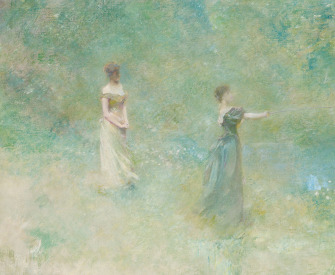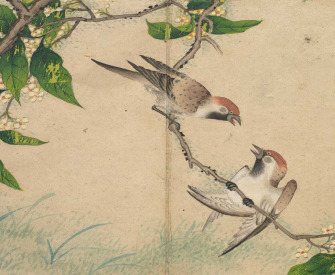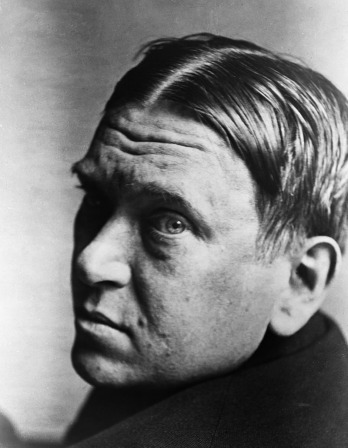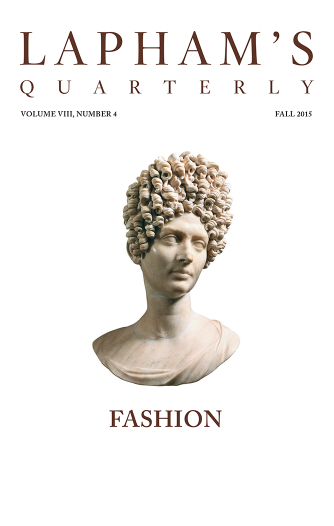As to the sea itself, love it you cannot. Why should you? I will never believe again the sea was ever loved by anyone whose life was married to it. It is the creation of omnipotence, which is not of humankind and understandable, and so the springs of its behavior are hidden.
—H.M. Tomlinson, 1912Man’s Best Friend
In which dolphins are superior to all other creatures.
The swiftest not only of the sea animals but of all animals whatsoever is the dolphin. He is more rapid in his movements than a bird, more instantaneous than the flight of an arrow, and were it not for the fact that his mouth is situated much below his muzzle, almost, indeed, in the middle of the belly, not a fish would be able to escape his pursuit.
But Nature in her prudence has thrown certain impediments in his way, for unless he turns and throws himself on his back, he can seize nothing, and it is this circumstance more especially that gives proof of his extraordinary swiftness. For, if pressed by hunger, he will follow a fish as it flies down to the very bottom of the water, and then after holding his breath thus long, will dart again to the surface to respire, with the speed of an arrow discharged from a bow; and often, on such occasions, he is known to leap out of the water with such a bound as to fly right over the sails of a ship.
Dolphins generally go in couples; the females bring forth their young in the tenth month, during the summer season, sometimes two in number. They suckle their young at the teat and even carry them during the weakness of infancy; in addition to which, long after they are grown-up, they accompany them, so great is their affection for their progeny. The young ones grow very speedily and in ten years are supposed to arrive at their full size. The dolphin lives thirty years, a fact that has been ascertained from cutting marks on the tail, by way of experiment. It conceals itself for thirty days, at about the rising of the Dog Star, and hides itself so effectively that it is not known whither it goes—a thing that is more surprising still if it is unable to respire underwater. Dolphins are in the habit of darting upon the shore for some reason or other, it is not known what. They do not die the moment that they touch the dry land, but will die much more speedily if their vent hole is closed. The tongue, contrary to the nature of aquatic animals in general, is moveable, being short and broad, not much unlike that of the pig. Instead of a voice, they emit a moaning sound similar to that made by a human being; the back is arched and the nose turned up. For this reason it is that they all recognize in a most surprising manner the name of Simo and prefer to be called by that rather than by any other.
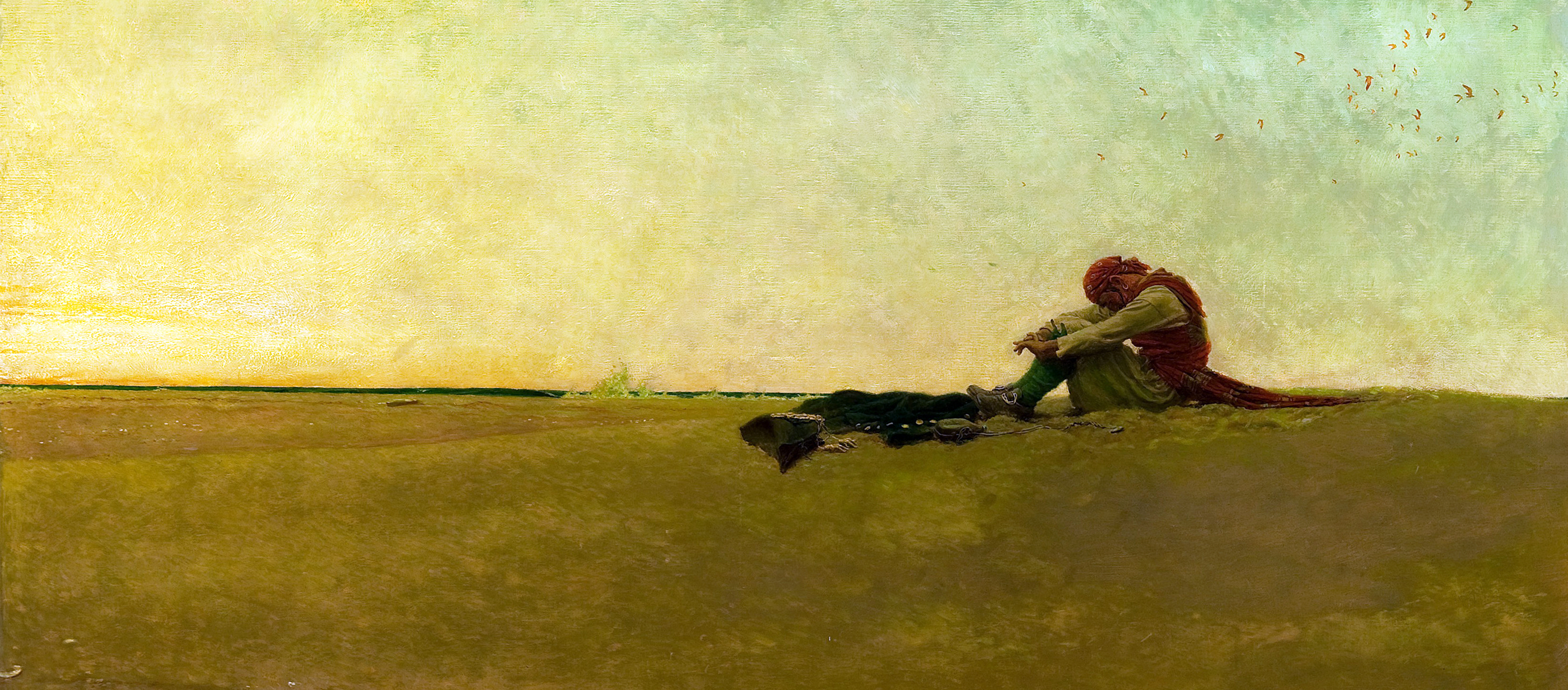
Marooned, by Howard Pyle, 1909. Delaware Art Museum.
The dolphin is not only friendly to man but a lover of music as well; he is charmed by melodious concerts and more especially by the notes of the water organ. He does not dread man, as though a stranger to him, but comes to meet ships, leaps and bounds to and fro, vies with them in swiftness, and passes them even when in full sail.
In the reign of the late Emperor Augustus, a dolphin that had been carried to the Lucrine Lake conceived a most wonderful affection for the child of a certain poor man who was in the habit of going that way from Baiae to Puteoli to school, and who used to stop there in the middle of the day, call him by his name of Simo, and would often entice him to the banks of the lake with pieces of bread that he carried for the purpose. At whatever hour of the day he might happen to be called by the boy, and although hidden and out of sight at the bottom of the water, he would instantly fly to the surface, and after feeding from the boy’s hand, would present his back for him to mount, taking care to conceal the spiny projection of his fins in their sheath, as it were. And so, sportively taking him up on his back, he would carry him over a wide expanse of sea to the school at Puteoli and in a similar manner bring him back again. This happened for several years, until at last the boy happened to fall ill of some malady and died. The dolphin, however, still came to the spot as usual, with a sorrowful air and manifesting every sign of deep affliction, until at last, a thing of which no one felt the slightest doubt, he died purely of sorrow and regret.
Within these few years also, another at Hippo Diarrhytus, on the coast of Africa, in a similar manner used to receive his food from the hands of various persons, present himself for their caresses, sport about among the swimmers, and carry them on his back. On being rubbed with unguents by Flavianus, then proconsul of Africa, he was lulled to sleep, as it appeared, by the sensation of an odor so new to him, and floated about just as though he had been dead. For some months after this, he carefully avoided all intercourse with man, just as though he had received some affront or other, but at the end of that time he returned, and afforded just the same wonderful scenes as before. At last, the vexations that were caused them by having to entertain so many influential men who came to see this sight compelled the people of Hippo to put the animal to death.
Hegesidemus has also informed us that in the city of Iasus there was another boy, Hermias by name, who in a similar manner used to traverse the sea on a dolphin’s back, but that on one occasion a tempest suddenly arising, he lost his life and was brought back dead; upon which, the dolphin, who thus admitted that he had been the cause of his death, would not return to the sea but lay down upon the dry land, and there expired.

Pliny the Elder
From Natural History. Announcing in the book’s prefatory remarks that his subject was “the natural world or life,” Pliny drew together an array existing scholarship, citing some one hundred sources, and supplemented it with his own views. While the commander of a fleet in the Bay of Naples in 79, Pliny went to investigate a strange cloud formation, which nearby inhabitants were terrified of, and he is thought to have died there, from suffocation. The cause was the eruption of Mount Vesuvius, and the incident was described by his nephew Pliny the Younger.
